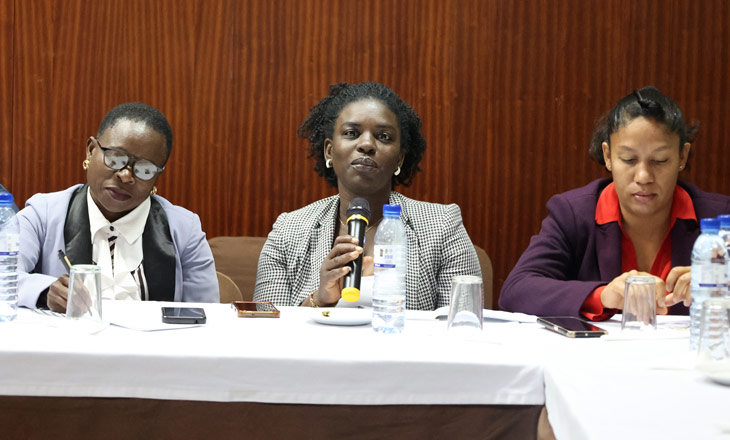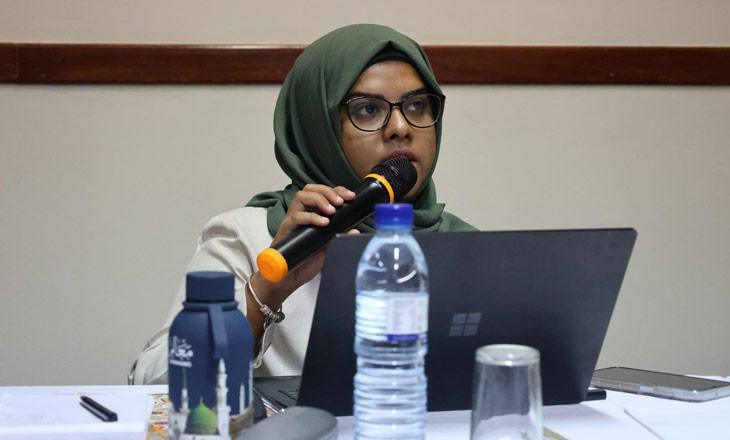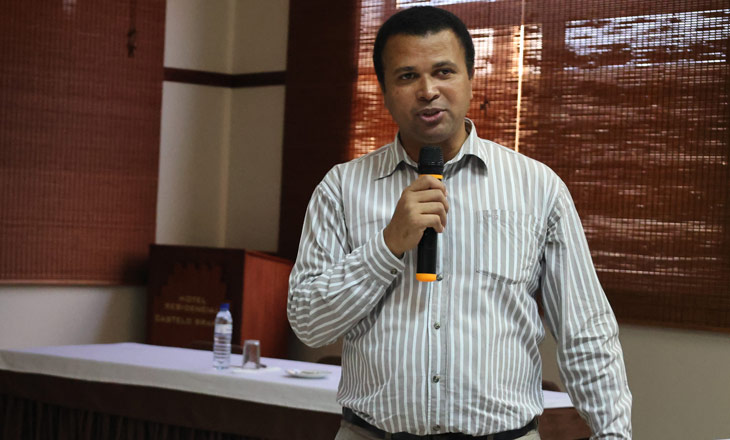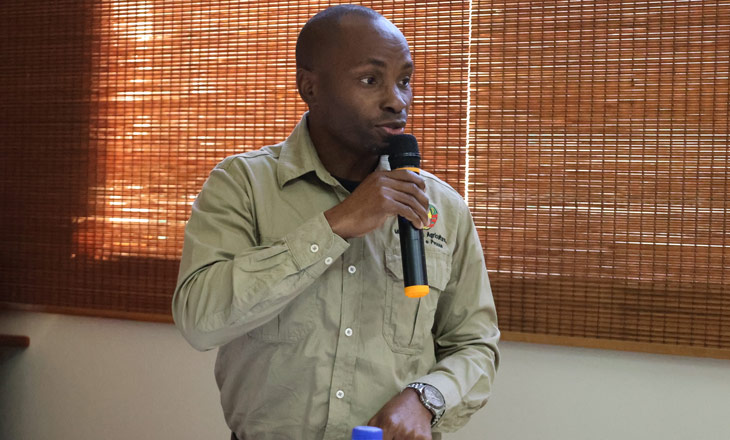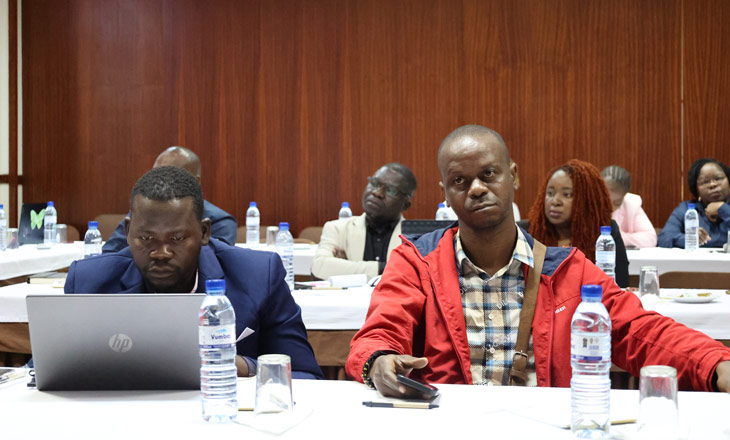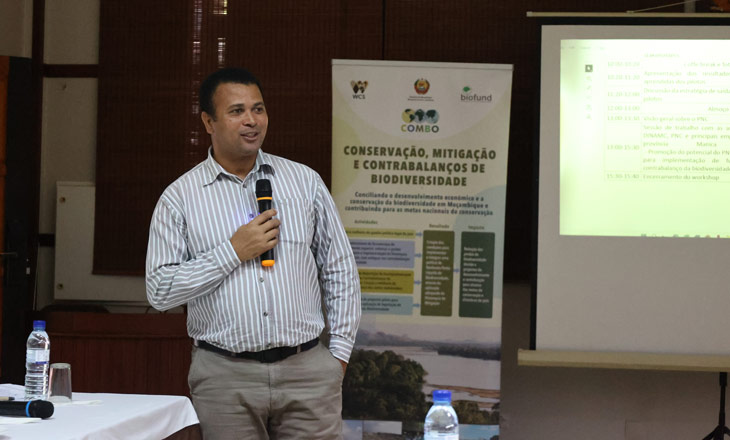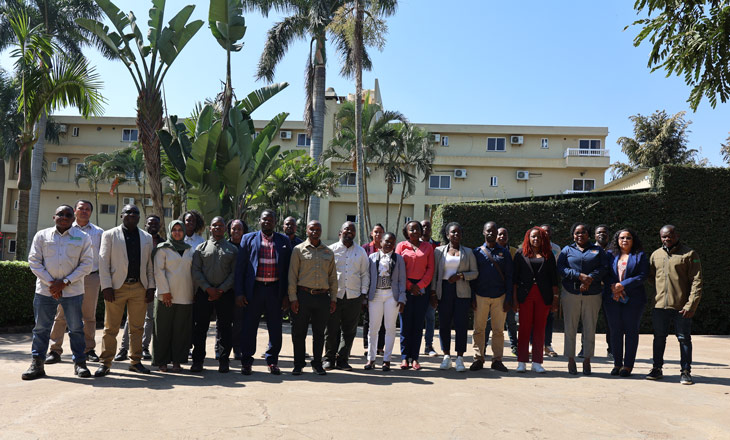On August 20, 2025, in Chimoio, Manica Province, the Closing Workshop of the Habitat Improvement Pilot Projects of the COMBO+ Program took place. The program is implemented by the Wildlife Conservation Society (WCS), the Foundation for the Conservation of Biodiversity (BIOFUND), and the Government of Mozambique, represented by the National Directorate for Environment and Climate Change (DINAMC) of the Ministry of Agriculture, Environment and Fisheries (MAAP). The event brought together 33 representatives from government, the private sector, civil society, academia, and local communities, creating a space for sharing experiences, critical analysis, and joint reflection on the future of biodiversity offsets in the country.
Published at 25/08/2025
COMBO+ wraps up pilot projects, reinforcing key lessons for biodiversity offsets in Mozambique
The COMBO+ Program has been implemented since 2016, creating favorable conditions to ensure that development projects do not generate significant negative impacts on biodiversity, seeking to prevent them, restore affected areas, and offset residual impacts. Within this framework, the program has promoted practical conservation actions to test methodologies and foster learning on biodiversity offsets in strategic areas such as Chimanimani National Park, Maputo National Park, Licuáti Forest Reserve, and the coastal ecosystems of Memba-Mossuril. These pilot projects made it possible to test methodologies established in the Biodiversity Offsets Directive (Ministerial Diploma nº 55/2022 of May 19) and generated a set of valuable lessons to guide this type of project in Mozambique.
The presentations highlighted significant progress in habitat recovery and in strengthening national technical capacity for the implementation, monitoring, and evaluation of ecological conditions. Representatives from the conservation areas that benefited from the pilot projects reiterated that the technical capacity is now in place to host future biodiversity offset projects.
Major challenges were also identified, such as the need for improved coordination between key institutions, limited financial resources, and the lack of clarity, commitment, and consistency in the application of environmental and mining legislation. It was emphasized that, without adequate budget for field visits, government institutions face difficulties in monitoring compliance with the legislation, which weakens the system and leaves room for environmentally harmful practices. In this context, participants reinforced the importance of greater professionalization of the agencies responsible for implementing legislation, stronger coordination between different institutions, including the Attorney’s Office on legal matters and the involvement of academia, which can contribute to research and training of technicians for the effective implementation of future biodiversity offsets.
During the debates, private sector representatives reiterated their interest in collaborating with conservation areas that had the experience of simulating biodiversity offsets through the implementation of the pilot projects, as these areas are now prepared. Participants also stressed the need to create integrated solutions that reconcile economic development objectives with the protection of ecosystems.
At the closing session, the official handover of the COMBO+ Program results package to the Government of Mozambique took place, marking an important milestone in the implementation of the Mitigation Hierarchy and in the development of public policies aligned with national and international conservation commitments. As one participant highlighted: “The greatest challenge now is to transform the lessons learned into consolidated practices, ensuring that everyone: Government, private sector, communities, and partners, takes responsibility for protecting biodiversity.”

